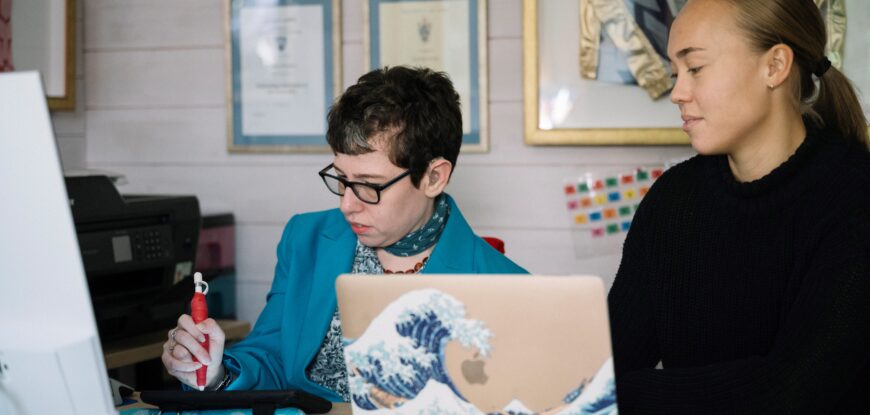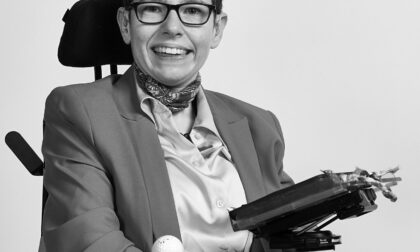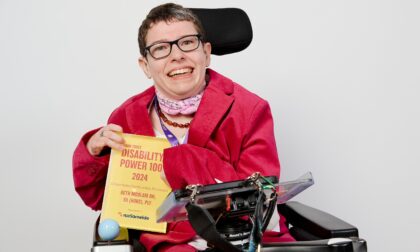Allies are essential for us all, and they can come from every part of life. A great ally wants to ensure they are inclusive of you. But more than this the best allies want to create a level playing field for everyone. They listen to AAC users, they help identify barriers that prevent inclusion. Then they use their privilege to address inequities in policy and practice. But most importantly they amplify the voices of AAC users by ensuring you have a platform to share your message. Becoming an AAC ally means:
Talking with AAC users, listening to what we have to share and supporting the ethos that there should be
nothing about us without us.
Knowing all AAC users are different:
Just because someone doesn’t have a voice doesn’t mean our heads are not filled with ideas, dreams, thoughts, opinions, and more. Each AAC user is an individual and will have their way of communicating.
Presuming AAC users are competent, everyone is an equal:
It is easy to make assumptions based on appearances. AAC users are just like everyone else, we have the same emotions and feelings. Please listen to what we have to say.
Making sure to check individual communication preferences:
Communicating in alternate ways can be hard work. Some days we might use different resources to interact depending on time, place, and how we feel. Not everyone communicates in the same way, and that’s alright.
Demonstrating great observational skills by recognising the multi-modality of communication for everyone:
A good ally is watching out for gestures, signs, body language, facial expressions, and eye movements as well as using AAC resources. When you get the opportunity make sure an AAC user gets heard and listened to.
Understanding the importance of asking one question at a time:
Recognise it takes time to output a message using AAC. This isn’t just a cognitive processing task, but communication is also a physical action. More than one question at a time means you might miss out on valuable insights.
Appreciating the need to be patient and wait for a response:
Don’t move on just because a response isn’t immediate. Learn to be comfortable in silence whilst an AAC user composes their message. Help others to also learn to wait.
Avoiding interrupting or making assumptions whilst we compose our message:
There is nothing worse than being talked over, or others assuming they know what we are going to say. Allow us to finish our message, our experiences matter. Then, respect our point of view.
Talking directly to the person as an individual, and not to an assistant:
An AAC user may have an assistant for supporting daily tasks, but they do not speak for us. An assistant is just that, an assistant. They often have excellent communication skills and will model how to communicate with an individual AAC user, watch and learn. Then in turn model for others to follow your lead.
Becoming an AAC ally is a conscious act. Slow down, think, and support others to support us.
Find out more about being a communication partner





If you found this interesting or
helpful please feel free to share.